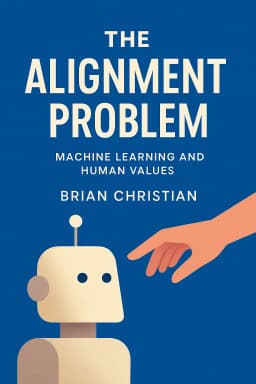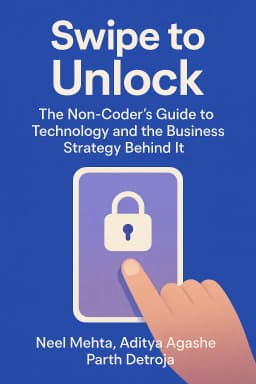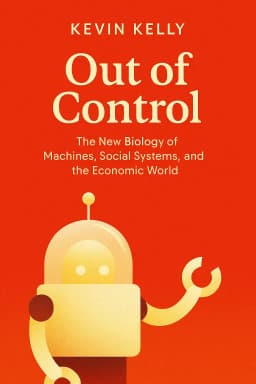
Patient Zero of Piracy
The End of an Industry, the Turn of the Century, and the Patient Zero of Piracy
Golden Hook & Introduction
SECTION
Joe: In the year 2000, the global music industry was a $14 billion behemoth, an empire built on shiny plastic discs. By 2015, it had lost more than half its value. The culprit wasn't a recession or a sudden wave of bad music. It was a single audio file format, a German engineer who was obsessed with a Suzanne Vega song, and a factory worker in North Carolina with an oversized belt buckle. Lewis: That is the most bizarre collection of suspects for a multi-billion dollar crime I have ever heard. A belt buckle brought down the music industry? That sounds like a conspiracy theory you'd find in the weirdest corners of the internet. Joe: It sounds like it, but it's the stunningly true story. This whole wild saga is laid out in Stephen Witt's incredible book, How Music Got Free: The End of an Industry, the Turn of the Century, and the Patient Zero of Piracy. And what's amazing is that Witt, who has a background in investigative journalism from Columbia, approached this like a detective story. He didn't just look at the tech; he found the people, the so-called 'Patient Zero' of piracy, and got them to talk for the first time. Lewis: I love that. Because for my generation, music just… appeared. It was on Napster, then Kazaa, then torrents. It felt like magic. We never stopped to think, "Where did this file actually come from?" The idea that there's a single person at the start of that chain is mind-blowing. Okay, so where does this story even begin? With the pirates? Joe: Actually, it starts somewhere much quieter, and much more... German. In a lab with a bunch of brilliant engineers who were just trying to solve a very, very difficult math problem.
The Accidental Revolutionaries: The Birth of the MP3
SECTION
Lewis: A math problem? I was expecting a shadowy hacker in a basement, not a bunch of guys with pocket protectors. Joe: Exactly. The book paints this amazing picture of the Fraunhofer Institute in Germany. The lead engineer was a man named Karlheinz Brandenburg, a true audio perfectionist. His life's mission was to create a digital audio file that could be compressed, shrunk down, without any perceptible loss in quality. The goal was a 12-to-1 compression ratio. Lewis: Why 12-to-1 specifically? That seems oddly precise. Joe: It was the magic number needed to stream high-quality audio over the digital phone lines of the time. The problem was, it was considered impossible. The prevailing wisdom was that you couldn't throw away 90% of the data in a song and have it still sound good. But Brandenburg had a secret weapon: psychoacoustics. Lewis: Okay, that's a fifty-dollar word. What is psychoacoustics in simple terms? Joe: It's the science of what your brain thinks it hears, not what your ear actually receives. The book explains it beautifully. Your ear is not a perfect microphone; it's flawed. It can be tricked. For example, if a loud sound, like a cymbal crash, happens right next to a very quiet sound, like a soft flute note, your brain just doesn't register the flute. It gets masked. Lewis: So they're basically tricking the ear? They're not just deleting random data, they're deleting the specific data they know our brains will ignore anyway. Joe: Precisely. They built an algorithm that analyzed music and threw out all the "masked" sounds. But they kept running into a wall. Their algorithm was great with complex orchestral music, but it fell apart with one specific type of sound: the unaccompanied human voice. It made voices sound distorted, like they were surrounded by, as the book puts it, "a cloud of scratching rats." Lewis: Scratching rats. That is not a good sound for a hit single. Joe: Not at all. And Brandenburg became obsessed with one particular song that exposed this flaw perfectly: Suzanne Vega's "Tom's Diner." It's just her voice, a cappella. He listened to that song thousands of times, tweaking the algorithm, trying to get rid of the distortion. He said later that he knew the compression technology would be a success if he could make "Tom's Diner" sound perfect. Because of this, Suzanne Vega is often called "The Mother of the MP3." Lewis: Wow. So the entire digital music revolution hinged on a folk-pop song from the 80s. That's incredible. But wait, if their technology was so good, why didn't the music industry jump on it? Joe: That's the tragic irony of the story. They didn't. In fact, they got repeatedly rejected. The book details these brutal international standards competitions where Brandenburg and his team would present their MP3 technology. And every time, they would lose to a rival format, MP2, which was pushed by the corporate giant Philips. Lewis: But was MP2 better? Joe: Not even close. In blind listening tests, the MP3 was consistently rated as superior. But the book shows how corporate politics and backroom deals won the day. A Philips executive literally stood up in one meeting and said, "Don't destabilize the system." They had a simpler, less effective technology, but they had the political muscle to make it the standard. Lewis: Wait, so the better tech lost because of a backroom deal? That sounds depressingly familiar. It's like the Betamax versus VHS story all over again. Joe: It's exactly that. The Fraunhofer team was devastated. Their funding was drying up. The MP3 was, for all intents and purposes, dead. They had created this world-changing technology, but the world didn't seem to want it. They even started giving away the encoder software for free on a floppy disk, just hoping someone would use it. Lewis: Okay, so the Germans invent this powerful, world-changing file format, but it's basically an orphan technology. It's just a tool lying on the ground. Who was the first person to really pick it up and weaponize it? Joe: That's the most incredible part of the story, and it takes us from a high-tech German lab to a place that couldn't be more different.
The Patient Zero of Piracy: The Factory Floor Leak
SECTION
Joe: The 'Patient Zero' of music piracy wasn't some tech genius in Silicon Valley. He was a guy named Bennie Lydell Glover, who went by Dell, working a temp job at a PolyGram CD manufacturing plant in Kings Mountain, North Carolina. Lewis: A CD factory. The irony is almost too perfect. The guy leaking the music was literally making the things he was about to make obsolete. Joe: The book paints such a vivid picture of this place. It was a massive, state-of-the-art facility that could pump out a quarter of a million CDs a day. For the people in that rural town, a job at the plant was a ticket to the middle class. Dell Glover was one of them. He was a tinkerer, obsessed with computers and gadgets, but he was stuck in a low-wage, dead-end job. Lewis: So what was his motivation? Was it just about the money? Joe: The book argues it was more complex than that. It started with a simple observation. He went to a house party thrown by a coworker, and the host was playing music that Glover knew hadn't been released yet. It was an album that was still being pressed at the plant. It was a hazy epiphany for him—these pristine digital files were just sitting there, ripe for the taking. Lewis: And he saw an opportunity. Joe: A huge one. But the real turning point came when he discovered the online world of the "warez scene." This was a subculture of elite, organized piracy groups who competed to be the first to leak new movies, software, and music. They had their own servers, their own rules, their own code of ethics. It was a secret society. Lewis: And this is where the MP3 comes back into the picture. Joe: Exactly. Glover discovered the MP3 format on an IRC chat channel. He downloaded a pirated copy of Fraunhofer's own player and his first pirated song: Tupac's "California Love." He compared it to the CD, and his mind was blown. It sounded identical, but it was a fraction of the size. He had this moment of realization, as the book puts it: "what the hell was the point of a compact disc?" Lewis: You're telling me the biggest leaks in music history came from a guy hiding CDs in his pants? That's insane! Joe: It's even better than that. The book details his smuggling method. Security at the plant was tight, with metal detectors and wandings. But Glover was observant. He noticed the security guards were lazy; they'd always wand people's torsos and legs, but they got tired of bending down to check shoes and they never paid much attention to belt buckles. Lewis: No way. Joe: Yes way. He would smuggle the pre-release CDs out of the plant by tucking them into his waistband, right behind his enormous, oversized metal belt buckle. The wand would beep over the buckle, the guard would wave him through, and Dell Glover would walk out with the next number one album in the country. Lewis: That is the most brilliantly low-tech hack of a high-tech system I've ever heard. It’s like something out of a heist movie. Joe: He became the main supplier for the most notorious release group, Rabid Neurosis, or RNS. He was their golden goose. He leaked nearly 2,000 albums over a decade. Anything Doug Morris, the head of Universal, signed, Dell Glover leaked. He was the leak. Lewis: This is what I mean about never thinking where the files came from. I, and millions of others, were downloading music that this one guy smuggled out of a factory using his belt. It reframes the entire memory of that era. It wasn't this decentralized, anonymous cloud. It was, in large part, Dell Glover. Joe: So on one side you have the German engineers who built the weapon. On the other, you have the factory-floor pirate who fired it. But what about the people in charge? The music executives? Lewis: Yeah, what was the head of Universal, Doug Morris, doing while his entire empire was being dismantled from the inside out by a guy with a belt buckle?
The Dinosaurs Who Learned to Dance (or Didn't)
SECTION
Joe: Doug Morris is one of the most fascinating characters in the book. He's portrayed as this old-school music mogul, a kind of "old country lawyer" type. He wasn't a music purist; he was a businessman. The book tells a great story about how he signed Hootie & the Blowfish. His A&R guys, the supposed tastemakers, kept passing on them. But Morris saw the sales data from a few stores in the Carolinas and said, "Sign them. The numbers don't lie." Lewis: So he was data-driven, which you'd think would make him prepared for the digital age. Joe: You would think! But when it came to technology, he was completely lost. There's this infamous interview he gave where he admitted, "There’s no one in the record company that’s a technologist... I wouldn’t be able to recognize a good technology person—anyone with a good bullshit story would have gotten past me." Lewis: Wow. The head of the biggest music company in the world, at the dawn of the digital music age, is admitting he has no idea what he's doing. That's a recipe for disaster. Joe: And it was. The industry's response was a masterclass in fumbling. First, denial. Then, aggression. They sued Napster out of existence. But that was like cutting the head off a hydra. A dozen more peer-to-peer services like Kazaa and LimeWire popped up in its place. Lewis: And then they started suing their own customers, right? I remember those headlines. Joe: They did. The RIAA, the industry's trade group, launched thousands of lawsuits. The book highlights the case of Jammie Thomas, a single mother from Minnesota who was sued for sharing 24 songs. The initial judgment against her was for $222,000. It was a PR nightmare. They were suing grandmothers and college kids. Lewis: This is where the book gets really interesting, because it doesn't just paint the pirates as villains. It shows the industry was kind of corrupt itself, right? The book mentions they were colluding to keep CD prices artificially high. Joe: That's a crucial point Witt makes, and it's backed up by FTC investigations. The major labels were engaged in price-fixing, costing consumers an estimated half a billion dollars. So when the industry started crying foul about piracy, the public had very little sympathy. Many people felt like they were just getting a little of their own back from an industry that had been gouging them for years. Lewis: It's hard to feel sorry for a bully who finally gets punched in the nose, even if the punch is technically illegal. It creates this moral gray area. The pirates were breaking the law, but the industry they were stealing from wasn't exactly a saint. Joe: And that's the central tension. You have these three worlds colliding: the naive inventors, the ambitious pirate, and the clueless, powerful executives. None of them fully understood what they were unleashing. Brandenburg just wanted to solve a puzzle. Glover wanted a better life and some respect. And Morris just wanted to keep selling plastic discs. The MP3 was the catalyst that threw them all together.
Synthesis & Takeaways
SECTION
Lewis: It's just a wild story. The book makes you realize that these huge historical shifts, the ones that change everything, are never planned. They're the result of a series of accidents, of ambition, of greed, and a few key people being in the right place at the right time with the right piece of technology. Joe: That's the perfect summary. You have these three parallel universes that never should have met: the meticulous German engineering lab, the dusty factory floor in the rural South, and the lavish, out-of-touch boardrooms of New York. The MP3 wasn't just a file format; it was the wormhole that connected them. And the collision didn't just disrupt an industry; it created a new universe for how we experience and value music. Lewis: It really did. And it makes you think about today. The book ends around the time streaming is taking over, but the same forces are at play. You have AI creating music, TikTok making songs go viral overnight, artists fighting with labels over streaming royalties. The chaos never really ended, it just changed form. Joe: That's so true. The battle over who controls the distribution of culture is a constant. The technology changes—from the printing press to the CD press to the algorithm—but the fight remains the same. Lewis: It makes me wonder, what's the 'MP3' of today that we're not seeing? What's the seemingly harmless bit of tech, or the overlooked person in a mundane job, who's about to accidentally upend another billion-dollar industry? Joe: That is a great question. And it's the kind of question that a book like this leaves you with. It’s not just a history of music; it’s a blueprint for how disruption happens. What do you all think? What's the next 'music getting free' moment? Let us know your thoughts on our socials. We'd love to hear them. Lewis: Absolutely. This was a fascinating one. Joe: This is Aibrary, signing off.









